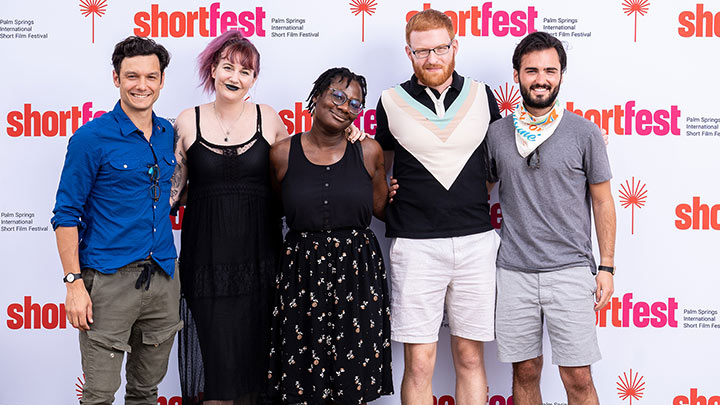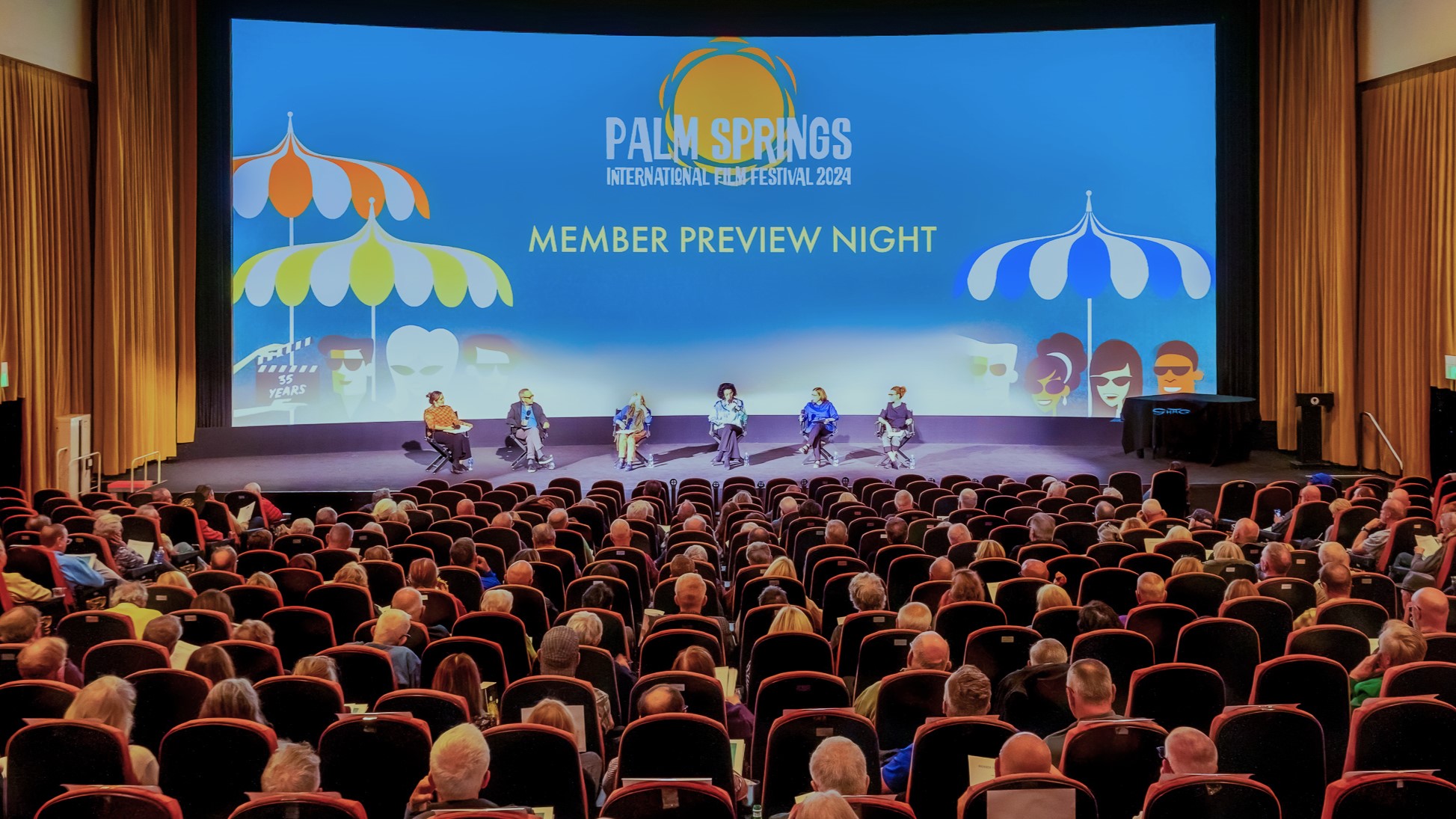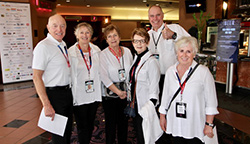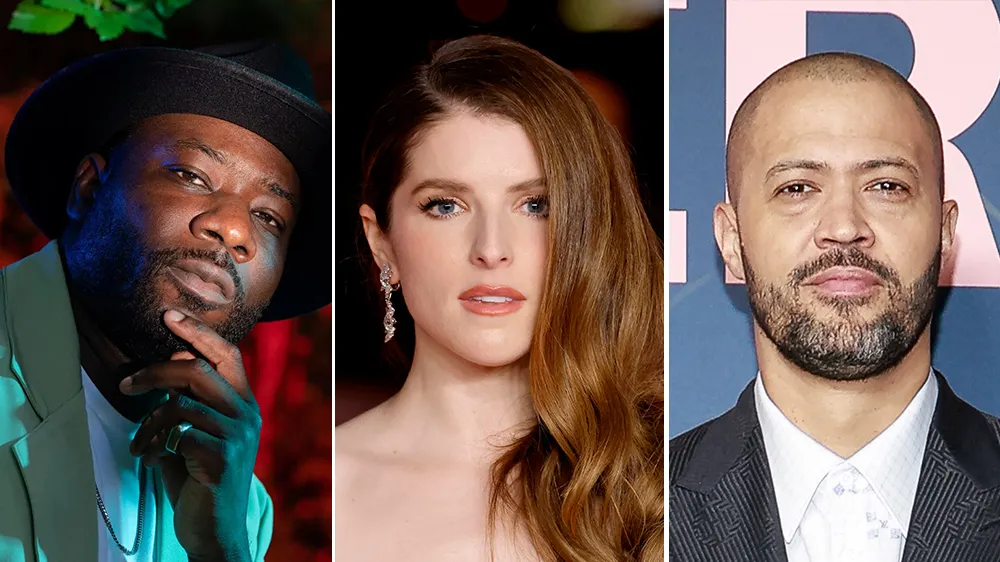News
Now in its 27th year, Variety’s annual 10 Directors to Watch highlights some of the most promising and creative young filmmakers in the entertainment industry. Presented this year (as we have for the last several) at the Palm Springs International Film Festival, our list is as full of promising up-and-comers as ever, with at least three directors whose work has already staked a claim during the 2023-2024 awards season, and several with films that are set to premiere at Sundance, Berlin and other spring festivals.
Back in 1997, the publication honored the likes of Wes Anderson (“Bottle Rocket”), Alfonso Cuaron (“A Little Princess”) and Mary Harron (“I Shot Andy Warhol”); since then, we’ve recognized Kasi Lemmons (“Eve’s Bayou”), Christopher Nolan (“Memento”), Fernando Meirelles (“City of God”), Taika Waititi (“Eagle vs Shark”), Luca Guadagnino (“I Am Love”), Justin Simien (“Dear White People”), Chloe Zhao (“The Rider”) and Nia DaCosta (“Candyman”) among many others.
Particularly at a time when changes in financing, shooting and distribution generate new challenges for artists to get their films funded, their visions fulfilled and finally their work shown to audiences, recognizing young artists feels more important than ever — especially those who have much to say so early in their careers. And this year featured an embarrassment of riches in terms of directors telling powerful, visually arresting stories, making our job of narrowing a list to just ten a difficult but enviable one.
Please read below about this year’s Directors to Watch, whose films capture stark, complex truths (“Ivo,” “The Teachers’ Lounge”), explore heightened but all too relatable worlds (“The American Society of Magical Negroes,” “Sweet Dreams”), create vivid, mesmerizing realities (“The Color Purple,” “Solo”), generate uncomfortable, provocative tensions (“Exhibiting Forgiveness,” “Woman of the Hour”) and leave audiences asking exciting, uneasily answered questions (“American Fiction,” “A Different Man”).
Blitz Bazawule — The Color Purple
PAULA HENDRICKSON
After first being “converted to the religion of cinema” by evangelicals screening Martin Scorsese’s “The Last Temptation of Christ” in his native Ghana, Bazawule’s 2018 debut, “The Burial of Kojo,” garnered him immediate praise; by 2020, he had directed episodes of Ava DuVernay’s series “Cherish the Day,” Beyonce’s feature-length album video, “Black is King,” and was hired to direct the latest adaptation of Alice’s Walker’s classic “The Color Purple.” He admits that the prospect of tackling the iconic property was daunting at first.
“When you get the opportunity to even pitch for it, the first question becomes ‘What are you possibly going to add to this canon?’ That was my first biggest piece of anxiety,” says Bazawule.
He turned to Walker’s novel for inspiration. “I started looking for something that may have not been explored as much… and I found it on the first page,” he remembers. “When she says, ‘Dear God, I'm 14 years old,’ I realized that there was an opportunity in Celie's headspace, because anyone who could write letters to God has an imagination.”
His biggest priority became figuring out how to lean into that imagination. “How do I give the audience an insight into how Celie overcame her trauma by going through her healing journey?” he asked. But before Bazawule could start answering that question, the pandemic shut things down. “We were going to shoot about three months after greenlight, but it was just not plausible because of COVID,” he says.
The delay, Bazawule reveals, was a blessing in disguise. “I really had time to really hone in on who I wanted, the locations I needed, the team I needed to create with,” he says. “Being prepared is the most critical part of the job.”
Ilker Çatak — The Teachers’ Lounge
BRENT SIMON
A complex drama which compellingly assays issues of race, class, age and shifting power dynamics, “The Teachers’ Lounge” picked up two honors after its world premiere at Berlinale 2023, and then swept the top three prizes (plus a Best Actress trophy for Leonie Benesch) at the German Film Awards.
The trajectory of awards recognition for his film, now Germany’s Oscar entry, has opened a whole set of new doors, admits co-writer and director Ilker Çatak. “My next project got financed much, much quicker,” he says with a good-natured laugh.
Like one of his films’ characters, a sense of curiosity and cautious optimism informs Çatak’s new reality. “I’m trying to keep my cool and not get carried away,” Çatak says. “Success is great, but at the same time it creates expectations and more pressure.”
A diverse, international roster of formative cinematic influences (from Gus Van Sant and Steven Soderbergh to Christian Petzold, Nuri Bilge Ceylan and Asghar Farhadi), as well as a keen sense of the complexities of social identity (he was born in Berlin to Turkish parents), informed Çatak’s love of films which interrogate the unusual intersections of shared social spaces — asking questions rather than providing pat answers. “If I have to complete the remaining part [of a film] myself, then usually that story sticks with me,” he says.
That sense of inquisitiveness certainly describes “The Teachers’ Lounge,” which tells the story of an idealistic educator who, after a series of petty thefts at her school, tries to mediate between outraged parents, colleagues and students, only to find herself besieged on all sides.
Next up is “Yellow Letters,” starring Tansu Biçer and Gizem Erdem, which Çatak describes as a personal story about modern-day Turkey, told through the lens of two artists who lose their jobs. Everyday struggles eventually give way, he says, to “a point where they’re faced with a sell-off of their ideals, both as parents and as artists.”
Sophie Dupuis — Solo
COURTNEY HOWARD
With three features under her belt, the first of which (“Family First”) was selected as Canada’s 2018 Oscar submission for Best Foreign Film, writer-director Dupuis hasn’t let the pressure of critical acclaim get to her. “If I think about that [while] making my film, it’s gonna be not essential interference in my head,” says Dupuis. “I don’t see the importance of giving attention to that.”
It was Dupuis’ well-researched fascination with toxic relationships that led her to “Solo,” a love story about a drag artist (Théodore Pellerin) whose light is dimmed after he begins dating a fellow performer (Félix Maritaud), just as his estranged mother (Anne-Marie Cadieux) arrives in town. “When I was a teenager, I was thinking about becoming a psychologist,” she says. “I did therapy for myself, but also to get to know everything about human psychology.”
Dupuis was passionate about setting this character-driven story in the drag world, which gave its fantasy elements a visually arresting vibrancy. “I like to make natural, realistic movies, but on the stage, I wanted to glamourize this form of art.” She continues, “They’re making humor for queer people, and they’re making something important for the community. The message behind the art, we need that in our society right now – getting the drama out of that question about gender, just living and having fun.”
Dedicated to growing in her craft, Dupuis says her priority in life is filmmaking. “It’s what brings me more joy in life than anything I’ve ever experienced. I haven’t found that beauty and joy anywhere else yet.”
The Quebecois talent lives by the advice she often gives to the cinema students who see her films: “Give the opportunity to your audience to see the world through your eyes for an hour and a half. If you’re thinking too much or changing to please people, you’re not giving them this experience.”
Cord Jefferson — American Fiction
ADAM VARY
Cord Jefferson is earning widespread praise and awards consideration for his directorial debut, “American Fiction,” but he didn’t even allow himself to think about being a director until he was in his mid-30s. After leaving his journalism career to become a TV writer, Jefferson was working on Season 2 of Aziz Ansari’s Netflix series “Master of None” when Ansari asked him if he’d ever considered directing.
“I said, ‘No, I haven’t been to film school, I don't know anything like cameras or lighting,’” Jefferson says. “And he was like, ‘Well, I didn’t go to film school, and I directed these episodes.’”
That planted the seed, and as Jefferson’s writing career took off with his work on “The Good Place,” “Succession” and his Emmy-winning stint on the 2019 miniseries “Watchmen,” he says he started looking for a project that would give him the courage to jump into the director’s chair.
He found it with Percival Everett’s 2001 novel “Erasure,” about English professor Thelonious “Monk” Ellison, who’s stymied by the publishing world only valuing Black stories about poverty and crime, and protests by writing a satire called “My Pafology.”
“I finally felt like I had found a story that I knew on a molecular level,” he says. “That’s what gave me the confidence to say, ‘Even if I don't know anything about the lighting or the cameras, I know the story that I’m trying to tell and the characters that I'm trying to manifest.’”
Jefferson maintained that perspective throughout the production of “American Fiction,” telling his cast — including Indie Spirit award nominees Jeffrey Wright, Sterling K. Brown and Erika Alexander — and his crew from the outset that he would be leaning on them for support.
“The people on set who didn’t have experience were me and the PAs,” he says with a laugh. “I was surrounded by people who not who not only were tolerating my inexperience but were excited to help this person learn to become a better filmmaker.”
Titus Kaphar — Exhibiting Forgiveness
MURTADA ELFADL
An internationally celebrated artist, Titus Kaphar didn’t set out to be a filmmaker. “I'm an image maker, and storyteller, and the film evolved from initially writing down some of my memories, Kaphar says. “It’s a way to tell a story that could help my children understand my experience and experiences like mine.” His semi-autobiographical debut, “Exhibiting Forgiveness,” was selected for the 2024 Sundance Film Festival’s US Dramatic competition.
About a painter grappling with complicated familial relationships and generational trauma, the film unsurprisingly forced him to look inwards. “On the page it’s easy to be vulnerable. But now I'm in a situation where it's not private anymore,” says Kaphar. “My family's life is implicated in my story." He says he hoped to tell his, and his father’s, stories honestly.
“It was never my desire to turn him into a villain,” he insists. “I’m showing his humanity and the challenges that he went through and how our lives collided. Not every scene is directly from life, but there is an emotional truth to every single second of this film.”
Kaphar is excited at the prospect of “Exhibiting Forgiveness” reaching an audience. “It has been my experience that the more successful I am in the art world, the more distance there is between me and the community I came from. Art institutions are not targeting my little brother, for example,” he says. “My community will be able to engage with this story in a way that they couldn’t with some of my work in the art world.”
Despite his debut’s deeply personal origins, Kaphar credits to his actors (Andre Holland, Andra Day, Anjunue Ellis-Taylor and John Earl Jelks) and producers (Stephanie Allain, Derek Cianfrance and Sean Cotton) for making “Forgiveness” possible. “Don’t pat me on the back,” he says.
Anna Kendrick — Woman of the Hour
ANGELIQUE JACKSON
Anna Kendrick has long dreamt of directing — not that she’d said that out loud to anyone else or fully admitted it to herself.
“I felt too vulnerable to ever really say that it was something that I wanted, because then I’d have to feel the impact of, ‘What if I never get the opportunity?’” Kendrick tells Variety.
The Oscar nominated actor (and Variety’s 2007 10 Actors to Watch honoree) had been attached to “Woman of the Hour” — a ripped-from-the-headlines drama about a serial killer who appeared on “The Dating Game” — for nearly two years when the original director departed the project. Less than six weeks before the movie went into pre-production, she offered to take the reins.
“I didn’t have time to think about what a disaster it could be,” she says, thinking back on the whirlwind 24-day shoot. Instead of a disaster, the film prompted a bidding war after its Toronto International Film Festival premiere, which Netflix won in an approx. $11 million deal. Of course, there were challenges, like clomping up the bleachers in 70s era platform heels to check the monitor in between takes of a 25-page scene. But swapping from actor to director mode didn’t prove to be as difficult as people warned her it could be.
“Me and the lead of the film were always on the same page,” Kendrick jokes. “It was one less thing I had to manage.”
Now that her debut has been deemed a success, Kendrick aims to continue directing and she’s keeping her options open.
“I’ve been offered some other genre-type films and it always comes with this caveat, like ‘We totally understand if you don’t want to pigeonhole yourself,’” she says. “I’ve been known as the a cappella comedy girl for 10 years. I’m not worried.”
Kobi Libii — American Society of Magical Negroes
TODD GILCHRIST
Though the title immediately lends itself to explosive, multidimensional worldbuilding, Kobi Libii didn’t originally conceive “The American Society of Magical Negroes” as a feature. “I assumed it was going to be probably a two-and-a-half-minute sketch,” says Libii. “[But] I came up for air after working on it for way too long and it felt like I was writing something about something bigger.”
Less an indictment of the narrative trope coined by Spike Lee than a pathway for the Fort Wayne, Indiana native to examine the defense mechanisms he’d been taught for responding to racism and white supremacy, “Magical Negroes” evidences Libii’s organic transition to directing after studying theater and improv comedy at Yale and Second City in Chicago, Illinois. “There were stories that I wanted that weren't being told,” he recalls. Even so, he bristles at shouldering responsibility for capturing the full breadth of the lives of American people of color.
“My hope would be that we're moving toward a world where we can all be telling stories that reflect us personally, but not necessarily every person that has everything in common with us.”
Moving forward, Libii emphasizes he’s interested in stories about what enables people to grow. “To be better than they were the day before,” he says. “I find it terrifically hard — and also really inspiring — when people can actually do it.” As with “Magical Negroes,” he embraces the opportunity to have fun while exploring challenging ideas. “I always want to find something really unvarnished and honest and profound to me,” Libii explains.
“I have a comedy background, so shame and embarrassment are things we like as funny people.
So if I have that feeling that I've said too much or I've given too much away, I often chase that thing, because there's often something there that is really true and transgressive.”
Aaron Schimberg — A Different Man (SUNDANCE)
TODD GILCHRIST
Now on his third film, “A Different Man,” writer-director Aaron Schimberg says he always wanted to be a filmmaker. “I never had any ambition outside of that,” Schimberg admits. Though he’s now grateful for his education at USC Film School, it was a path to directing he hadn’t envisioned for himself.
“I didn't take to it because I was naive about how the industry works,” he says. “I just wanted to deny the existence of this giant machine controlling the arc that I loved.”
That outsider’s perspective also shaped his upcoming psychological drama about a disfigured man (Sebastian Stan) reckoning with the aftermath of facial reconstructive surgery. Schimberg explains, “I was thinking about the broad psychological cliche that the way we judge others is a reflection or a manifestation of the way we feel about ourselves, so I just literalized that.”
What emerges from the premise is an increasingly complex meditation on identity, revolving around characters that Schimberg tries not to know too much about. “I deliberately shield myself from knowing these things so that their actions and their words and their deeds can just unfold,” he says.
Despite that deliberate detachment, Schimberg says that each project is all-consuming as he makes it. “I am walking around with one idea, and then that idea overtakes my life,” he says. That said, he’s unsure yet how cathartic the process can be of translating that idea to the screen. “I do think of films as therapy. On the other hand, the process of making a film can be so traumatic that I don't know if it's actually useful,” he jokes.
“So it's sort of an endless cycle in that sense, but maybe after 10 films I'll feel that I've finally healed myself.”
Ena Sendijarevic — Sweet Dreams
PETER DEBRUGE
Sendijarević was born in a small town in Bosnia, but her family fled the country when war broke out, moving to the Netherlands when she was 7 years old. The writer-director’s memories of that tricky adjustment — including taunts from Dutch kids to “go back to your own country” — informed her 2016 short, “Import.”
“There was a lot of absurdity there,” says the writer-director, whose work finds humor in the most unexpected places. That’s the case with her wickedly funny second feature, “Sweet Dreams,” a surrealist period satire set on a sugar plantation in the Dutch East Indies. Selected to represent the Netherlands at the Academy Awards, the movie questions the country’s colonialist past with the skepticism of someone who wasn’t born there.
“I’ve been living in Amsterdam since I was 17, and I wanted to understand a bit more about this country and how it relates to the rest of the world,” Sendijarević explains.
“Sweet Dreams” also sticks it to the patriarchy, as when the old white guy running the operation suffers a heart attack early on. His wife does not react as most audiences would expect, and from that point forward, it’s the dreams of the female characters’— one his widow, the other his mistress — that power a meticulously composed film full of subversive choices.
“I try to write in images, and that’s when the most interesting scenes come forward,” Sendijarević says. “There was even a version where the size of people would change.”
Sendijarević graduated from the Netherlands Film Academy, where students were pushed toward social realism. But her sensibility swung hard in the opposite direction, tickled by the playfulness of the Czech New Wave and Yugoslav Black Wave in particular.
“Those films were an entrance to me to make my own style, as well as to use a certain kind of humor,” says Sendijarević, who’s now developing an English-language film — another fever dream of sorts, this one set in a desolate natural location.
Eva Trobisch — Ivo
GREGG GOLDSTEIN
Eva Trobisch was only six years old when the Berlin Wall came down. "It changed everything," the East Berlin native recalls, "but I couldn't understand why everyone was so excited." Today the writer/director and former teen actress analyzes more intimately transformative events, such as those in her prizewinning 2018 feature debut "All is Well," about a woman coping with a sexual assault, and her upcoming Berlinale world premiere "Ivo," the story of a pallative care worker in a love triangle with her patient's husband.
The documentary-style drama — which quickly fell into place after another film was delayed during the pandemic — is partly based on a true story about people she knows, performed by professional and non-professional actors. "When I think about my next project, the starting point [is usually] a question that I don't have an answer for," she says.
Both films show the influence of her early role model, John Cassavetes, with his "vivid, naturalistic, character-driven approach." Trobisch will move away from female protagonists with her next film, tentatively titled "Something Quite Special (Etwas Ganz Besonderes)," which begins shooting in March. The film focuses on the family members of a girl preparing for exposure on a televised singing competition. Several of Trobisch's own family members worked in theater, including her director father and dramaturge mother.
"I'm a total family person, so I've worked with my production company Studio Zentral [partnering with Trimafilm on 'Ivo'] for years now. I've done every film with them and will continue that," says Trobisch, who lives in Berlin with her partner and nine-year-old son.
After her debut, she was frustrated when agents pursuing her only offered films about women and violence against them. "I'm very interested in the [whether or not] we can choose who we want to be, how we're connected with our social backgrounds and how much we can change completely."
About the Palm Springs International Film Society
The Palm Springs International Film Society is a 501(c)(3) charitable non-profit organization whose mission is to cultivate and promote the art and science of film through education and cross-cultural awareness. The Film Society produces the Palm Springs International Film Festival (PSIFF) and Film Awards every January and Palm Springs ShortFest in June. In addition to curating the best in international cinema, PSIFF’s Film Awards has come to be known as the first stop on the campaign trail for the Academy Awards®, and our Oscar®-qualifying ShortFest is the largest short film festival and market in North America. Our festivals, year-round member screenings and educational programs manifest our organization’s mission by nurturing and encouraging new filmmaking talent, honoring the great masters of world cinema, and expanding audience horizons.
Press Contacts:
Scenario Communications
PSIFF@scenariopr.com
Daniel Mansour
Marketing Manager, Palm Springs International Film Society
daniel@psfilmfest.org







